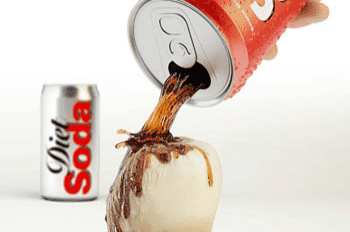What is the Enamel?
Did you know that tooth enamel is the hardest substance in the human body?
Enamel, the thin outer layer of the tooth, is one of the four tissues that make up the tooth. Composed mostly of the mineral hydroxyapatite, enamel is responsible for protecting your teeth from the wear and tear of everyday functions such as chewing, biting, and grinding.
Dangers of Enamel Erosion
If the enamel layer is reduced, or eroded, is can compromise your oral health. As the tooth’s protective layer, enamel health is important to ensure that the other parts of the tooth, specifically the dentin, are not exposed to the environment. The translucent mineral layer insulates the teeth from the heat, cold, and temperature changes. Enamel erosion can affect both comfort and aesthetics. Signs of erosion include:
- Discoloration of the teeth
- Tooth sensitivity, particularly to sweets and hot and cold foods
- Edges of the teeth appear transparent
- Cracks and chips
- Dents on the chewing surface of the teeth (cupping)
Foods That May Be Eroding Your Enamel
There are two types of enamel erosion: extrinsic and intrinsic. Extrinsic erosion is linked to dietary factors, specifically the consumption of acidic foods. Certain foods alter the pH level in the mouth, making the saliva more acidic. Some common food culprits include:
- Carbonated drinks
- Fruit drinks
- Wine
- Sugar
Intrinsic erosion is related to gastric acid and regurgitation. Digestive problems such as acid reflux and eating disorders (bulimia or anorexia) can cause lasting damage to tooth enamel.
Protecting the Enamel
Unfortunately, the body cannot replace enamel once it has completely disappeared. However, there are ways to strengthen, repair, and protect the precious outer layer of your teeth.
- Use quality dental care products. Enamel-strengthening toothpaste with fluoride and calcium can help restore the teeth.
- Maintain a healthy diet. Reduce or avoid foods that can wear the enamel down.
- Use a mouthguard. If you grind your teeth at night, a custom made mouthguard can help protect the teeth.
- Minimize the use of certain medications. Aspirin, for example, is a common medication that is related to enamel erosion.
- Manage the digestive system. Seek medical care if you suffer from a chronic digestive problem or eating disorder.
- See a dentist. Detect potential problems early by scheduling regular check-ups with your dentist.
If you are in the Los Angeles metropolitan area and have concerns about enamel loss and your dental health, contact Dr. Atoosa Nikaeen, DDS for a comprehensive consultation.


